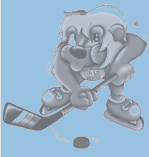

Approximately forty urine samples were already taken by the doping control commisars on the World Championships. None of them was positive.
"Player controls are not compulsory in the round robin games. The games are selected randomly. In the quater-finals the player controls are obligatory,“ says Jan Chlumsky, chief of the doping control executive.
The IIHF health care supervisor decides about who to test. “In the intermission between the second and the third period there is a draw which decides about which players will undertake the test,“ describes the process Chlumsky. “At the end of the game we announce names of the chosen players to the team doctor. Him and the players must come to the doping contol test up to fifteen minutes after the end of the game.“ Sometimes samples are taken within thirty minutes, other times the doping controlers have to wait even for three hours. “We simply have to wait until the player is ready to urinate, because we need to accompany him while he takes the sample. There was far too much cheating with smaples so we are forced to such a security precautions.“
Players have to drink a lot before the doping control so that they can hand in the urine samples. Therefeore we give them beer or water to drink. “Some players spend here even three hours till they are able to submit us the samples of 75 milliliters of urine. So the storage of drinks decreases markably,“ smiles Chlumsky.
The urine samples are collected and at the end of the day get send to a special laboratory in Hloubetin. “It is one of the thirty laboratories around the world that are regularly checked by the IIHF Commisars or by members of the International Olympic Committee,“ points out Chlumsky. The laboratory needs to evaluate the samples till the time when the controled player hits the ice for the next game. One urine sample analysis costs the laboratory bit more than five thousand Czech crowns.






